Related Research Articles

Alcoholics Anonymous (AA) is a global, peer-led mutual-aid fellowship dedicated to abstinence-based recovery from alcoholism through its spiritually inclined twelve-step program. AA's Twelve Traditions stress anonymity and the lack of a governing hierarchy, and establish AA as free to all, non-promotional, non-professional, unaffiliated, non-denominational, and apolitical. In 2021, AA reported a presence in approximately 180 countries with nearly two million members—73% in the United States and Canada.
Twelve-step programs are international mutual aid programs supporting recovery from substance addictions, behavioral addictions and compulsions. Developed in the 1930s, the first twelve-step program, Alcoholics Anonymous (AA), founded by Bill Wilson and Bob Smith, aided its membership to overcome alcoholism. Since that time dozens of other organizations have been derived from AA's approach to address problems as varied as drug addiction, compulsive gambling, sex, and overeating. All twelve-step programs utilize a version of AA's suggested twelve steps first published in the 1939 book Alcoholics Anonymous: The Story of How More Than One Hundred Men Have Recovered from Alcoholism.

Raymond Clevie Carver Jr. was an American short story writer and poet. He published his first collection of stories, Will You Please Be Quiet, Please?, in 1976. His breakout collection, What We Talk About When We Talk About Love (1981), received immediate acclaim and established Carver as an important figure in the literary world. It was followed by Cathedral (1983), which Carver considered his watershed and is widely regarded as his masterpiece. The definitive collection of his stories, Where I'm Calling From, was published shortly before his death in 1988. In their 1989 nomination of Carver for the Pulitzer Prize for Fiction, the jury concluded, "The revival in recent years of the short story is attributable in great measure to Carver's mastery of the form."
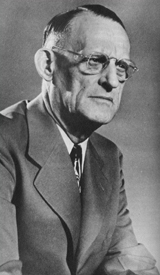
Robert Holbrook Smith, also known as Dr. Bob, was an American physician and surgeon who cofounded Alcoholics Anonymous with Bill Wilson.
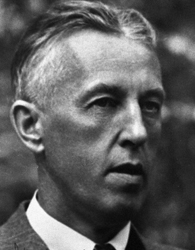
William Griffith Wilson, also known as Bill Wilson or Bill W., was the co-founder of Alcoholics Anonymous (AA) with Bob Smith.

A Delicate Balance is a three-act play by Edward Albee, written in 1965 and 1966. Premiered in 1966, it won the Pulitzer Prize for Drama in 1967, the first of three he received for his work.
"Where I'm Calling From" is a short story by American author Raymond Carver. The story focuses on the effects of alcohol. Throughout this story Carver experiments with the use of quotation and meditates on the healing factors of storytelling. "Where I'm Calling From" was originally published by The New Yorker magazine in their March 15, 1982 issue. It was later collected in Cathedral (1983). The story also lends its title to a collection of thirty-seven short stories compiled by Carver, Where I'm Calling From: New and Selected Stories (1988).

Hangover Square is a 1941 novel by English playwright and novelist Patrick Hamilton. It follows the alcoholic George Harvey Bone and his tortured love for Netta Longdon in the months leading up to the Second World War. Subtitled A tale of Darkest Earl's Court, it is set in that area of London in 1939.
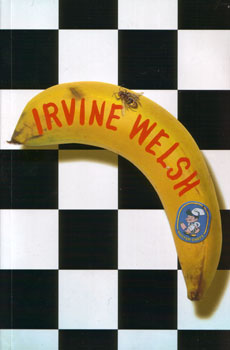
The Bedroom Secrets of the Master Chefs is the sixth novel by Scottish writer Irvine Welsh.

Alcoholic beverages appear in the Hebrew Bible, after Noah planted a vineyard and became inebriated. In the New Testament, Jesus miraculously made copious amounts of wine at the wedding at Cana. Wine is the most common alcoholic beverage mentioned in biblical literature, where it is a source of symbolism, and was an important part of daily life in biblical times. Additionally, the inhabitants of ancient Israel drank beer and wines made from fruits other than grapes, and references to these appear in scripture. However, the alcohol content of ancient alcoholic beverages was significantly lower than modern alcoholic beverages. The low alcohol content was due to the limitations of fermentation and the nonexistence of distillation methods in the ancient world. Rabbinic teachers wrote acceptance criteria on consumability of ancient alcoholic beverages after significant dilution with water, and prohibited undiluted wine.
"Cathedral" is a short story written by American writer and poet Raymond Carver. It was the first story written after finishing What We Talk About When We Talk About Love. "Cathedral" was first published in the September 1981 issue of The Atlantic Monthly. It was later collected in a short story collection of the same name in 1983.

What We Talk About When We Talk About Love is a 1981 collection of short stories by American writer Raymond Carver, as well as the title of one of the stories in the collection. Considered by many one of American literature's most ambitious short-story collections, it was this collection that turned Raymond Carver into a household name in the publishing industry.
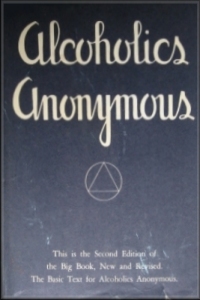
Alcoholics Anonymous (AA) is a global fellowship founded in 1935 by Bill Wilson and Robert Smith, and has since grown to be worldwide.
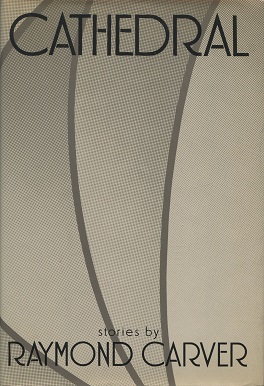
Cathedral is the third major-press collection of short stories by American writer Raymond Carver, published in 1983. It received critical acclaim and was a finalist for the 1984 Pulitzer Prize for Fiction.
"Vitamins" is a short story by American author Raymond Carver. It was originally published in the Spring 1981 edition of Granta magazine and later in 1983, in the short story collection Cathedral.

"Demon in a Bottle" is a nine-issue story arc from the comic book series The Invincible Iron Man, published in issues 120 through 128 in 1979 by Marvel Comics. It was written by David Michelinie and Bob Layton and illustrated by John Romita, Jr., Bob Layton, and Carmine Infantino. "Demon in a Bottle" is concerned with Tony Stark's alcoholism.
"Popular Mechanics" is a short story by American writer Raymond Carver. It was originally titled "Mine" and first appeared in Carver's 1977 collection Furious Seasons and Other Stories. It was then republished as "Little Things" in Fiction, as "Mine" again in Playgirl, as "Popular Mechanics" in Carver's 1981 collection What We Talk About When We Talk About Love, and again as "Little Things" in Carver's 1988 collection Where I'm Calling From: New and Selected Stories. There are minor revisions between the version of "Mine" in Furious Seasons and the version published as "Popular Mechanics".
Richard Rogers Peabody was an American psychotherapist who specialized in alcoholism.

Ann Carver's Profession is an American pre-Code 1933 film directed by Edward Buzzell. It focuses on the relationship of a female lawyer and her husband, and on the strain that her financial success places on their marriage. The film stars actress Fay Wray and this film was made during the year she cemented her fame in King Kong. Although the writing credits differ, the film bears a striking resemblance in plot to Columbia's 1938 production The Lady Objects starring Lanny Ross and Gloria Stuart.
Wasted: A Childhood Stolen, An Innocence Betrayed, A Life Redeemed is a 2008 memoir by British author Mark Johnson. As a child, he was severely mentally and physically abused by his father. When Mark escaped from where he lived, he turned to drugs and crime. His autobiography provides an account of his journey from self-destruction to self-fulfillment.